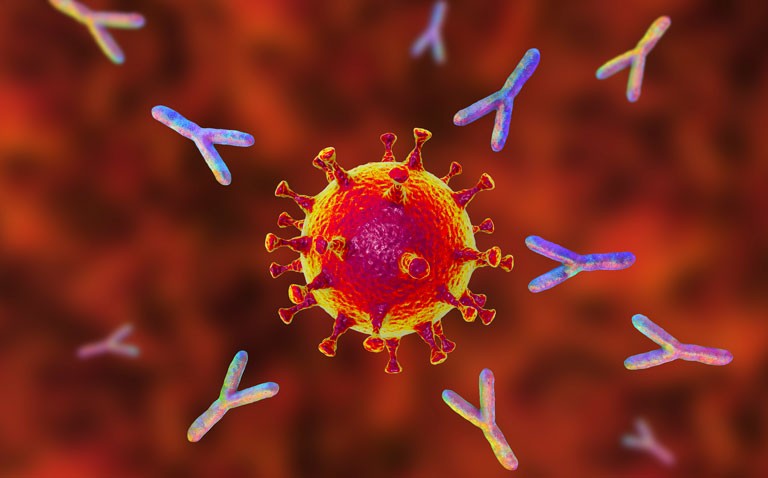COVID-19 antibodies have been detected in 11% of individuals who had no prior knowledge or suspicion of being infected with the virus
COVID-19 antibodies have been detected in 11% of individuals tested for the virus despite being unaware that they they had ever been infected. This was the conclusion of a study by researchers from the Department of Surgery, Johns Hopkins University School of Medicine, Baltimore, US.
It has become apparent that not everyone who becomes infected with COVID-19 develops antibodies. In fact, one study of 72 individuals with an acute infection, noted that 36% of recovered patients did not produce an antibody response. The authors concluded that patients who have a low COVID-19 viral load in their respiratory tract, are not always likely to mount a systemic antibody response.
Consequently, there is some uncertainty over the wider prevalence of serological non-responders and equally, the extent to which the immune response persists after a natural infection.
For the present study, the US team set out to characterise the extent and durability of the immune response among individuals who had not received one of the COVID-19 vaccines but who had potentially been naturally infected with the virus.
They turned to social media to recruit unvaccinated individuals and who completed an online questionnaire which enquired about demographics, COVID-19 status and mask use. Based on these findings, the researchers categorised individuals into three distinct groups.
Those who had a test-confirmed COVID-19 infection (COVID-19 confirmed group), those who felt they had been infected but were not tested (COVID-unconfirmed) and finally, those who did not believe that they had ever been infected and were never tested (NO-COVID). All individuals then agreed to undergo antibody testing.
COVID-19 antibodies and serological testing
A total of 816 individuals with a median age of 48 years (52% women) of whom the majority (82%) were of white ethnicity were included in the analysis. Surprisingly, nearly half (44%) reported that they ‘rarely’ wore a mask with only 14% reporting that they ‘routinely’ wore a mask.
Among the 295 individuals who were deemed COVID-confirmed cases, not surprising, 99% tested positive for COVID-19 antibodies. In contrast, this figure was much lower (55%) in the 275 COVID-unconfirmed group. Detectable antibody levels were observed up to 20 months after a COVID-19 positive test result which was considerably better than the response reported 6 months after receipt of a COVID-19 vaccination.
What was most surprising was that among the 246 no-COVID group, 11% tested positive for COVID-19 antibodies, despite no evidence or even a perception that they had been infected in the past.
The authors recognised that their study had several potential limitations including the use of a convenience sample and which was potentially subject to selection bias and that COVID-19 status and testing was self-reported.
Nevertheless, they were encouraged to observe that after a natural infection, the immune response was still detectable some 20 months later but recognised the uncertainty of the extent to which the natural protection would help guard against infection with any emerging variants in the future.
Citation
Alejo JL et al. Prevalence and Durability of SARS-CoV-2 Antibodies Among Unvaccinated US Adults by History of COVID-19 JAMA 2022










